
Jean-Luc Godard was a French and Swiss film director, screenwriter, and film critic. He rose to prominence as a pioneer of the French New Wave film movement of the 1960s, alongside such filmmakers as François Truffaut, Agnès Varda, Éric Rohmer and Jacques Demy. He was arguably the most influential French filmmaker of the post-war era. According to AllMovie, his work "revolutionized the motion picture form" through its experimentation with narrative, continuity, sound, and camerawork. His most acclaimed films include Breathless (1960), Vivre sa vie (1962), Contempt (1963), Band of Outsiders (1964), Alphaville (1965), Pierrot le Fou (1965), Masculin Féminin (1966), Weekend (1967) and Goodbye to Language (2014).

Adrien Nicholas Brody is an American actor. He is known for his portrayal of Władysław Szpilman in Roman Polanski's war drama The Pianist (2002), for which he won the Academy Award for Best Actor at age 29, becoming the youngest actor to win in that category. He also became the second American male actor to win the César Award for Best Actor for the same film. He has starred in several other films and has received several other awards including nominations for a Golden Globe Award and a Primetime Emmy Award.

Melvin Van Peebles was an American actor, filmmaker, writer, and composer. He worked as an active filmmaker into the early 2020s. His feature film debut, The Story of a Three-Day Pass (1967), was based on his own French-language novel La Permission and was shot in France, as it was difficult for a black American director to get work at the time. The film won an award at the San Francisco International Film Festival which gained him the interest of Hollywood studios, leading to his American feature debut Watermelon Man, in 1970. Eschewing further overtures from Hollywood, he used the successes he had so far to bankroll his work as an independent filmmaker.
La Permission is a 1967 French-language novel written by Melvin Van Peebles that was turned into the film The Story of a Three-Day Pass (1967).

The Hole is a 1960 French crime film directed by Jacques Becker. It is an adaptation of José Giovanni's 1957 book The Break. It was called The Night Watch when first released in the United States, but is released under its French title today. The film is based on a true event concerning five prison inmates in La Santé Prison in France in 1947. Becker, who died just weeks after shooting had wrapped, cast mostly non-actors for the main roles, including one man who was actually involved in the 1947 escape attempt, and who introduces the film. It was entered into the 1960 Cannes Film Festival.

The Son's Room is a 2001 Italian film directed, written and produced by Nanni Moretti. It depicts the psychological effects on a family and their life after the death of their son. It was filmed in and around the city of Ancona, with a cast led by Moretti, Laura Morante and Jasmine Trinca.
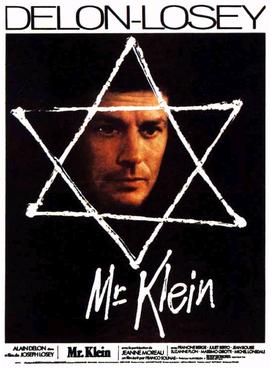
Monsieur Klein is a 1976 mystery drama film directed by Joseph Losey, produced by and starring Alain Delon in the title role. Set in Vichy France, the Kafkaesque narrative follows an apparently Gentile Parisian art dealer who is seemingly mistaken for a Jewish man of the same name and targeted in the Holocaust, unable to prove his identity.
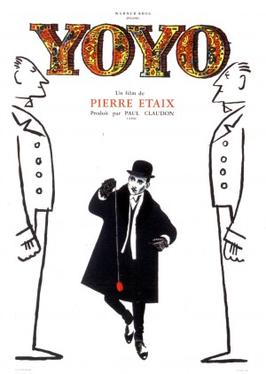
Yoyo, also referred to as Yo Yo, is a 1965 French comedy film directed by and starring Pierre Étaix. The story follows the son of a millionaire from the 1920s to the 1960s. After losing his fortune in the stock-exchange crash, he teams up with an equestrienne and becomes a circus clown. The film was entered into the 1965 Cannes Film Festival.

He Who Must Die is a 1957 French-Italian film directed by Jules Dassin. It is based on the novel Christ Recrucified by Nikos Kazantzakis. It was entered into the 1957 Cannes Film Festival.

Corneliu Porumboiu is a Romanian film director, screenwriter, and film producer.
The following tables list films released in 2013. Three popular films were re-released in 3D and IMAX.
In 2010, there was a dramatic increase and prominence in the use of 3D-technology in filmmaking after the success of Avatar in the format, with releases such as Alice in Wonderland, Clash of the Titans, My Name is Khan, Jackass 3D, and numerous other titles being released in 3D formats. 20th Century Fox celebrated its 75th anniversary in 2010.

Insiang is a 1976 Philippine drama film directed by Lino Brocka. Its screenplay, written by Mario O'Hara and Lamberto E. Antonio, is based on O'Hara's teleplay of the same name. Set in the slums of Tondo, Manila, the film stars Hilda Koronel as the eponymous character: the young daughter of a resentful mother, whose much-younger lover rapes her. After her assault and the betrayal of her own lover, Insiang seeks revenge. A representation of urban poverty, the film explores themes of betrayal, revenge and despair.
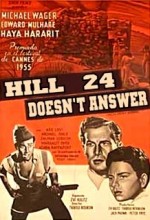
Hill 24 Doesn't Answer, the first feature film produced in Israel, is a 1955 Israeli war film directed by Thorold Dickinson. It was entered into the 1955 Cannes Film Festival. The plot revolves around the personal stories of a number of soldiers who are on their way to defend a strategic hill overlooking the road to Jerusalem.
Nicole Berger was a French actress.

Soleil Ô is a 1970 French-Mauritanian drama film written and directed by Med Hondo.

Frontier of the Dawn also Frontier of Dawn is a 2008 French drama film directed by Philippe Garrel. It stars Louis Garrel, Laura Smet, and Clémentine Poidatz. It tells the story of a photographer who is haunted by the ghost of his dead lover. It was screened at the 2008 Cannes Film Festival in competition. It was released in France on 8 October 2008.

Holy Motors is a 2012 surrealist fantasy drama film written and directed by Leos Carax and starring Denis Lavant and Édith Scob. Lavant plays Mr. Oscar, a man who appears to have a job as an actor, as he is seen dressing up in different costumes and performing various roles in several locations around Paris over the course of a day, though no cameras or audiences are ever seen around him. The film competed for the Palme d'Or at the 2012 Cannes Film Festival.
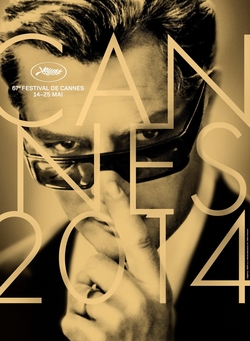
The 67th Cannes Film Festival was held from 14 to 25 May 2014. New Zealand film director Jane Campion was the head of the jury for the main competition section. The Palme d'Or was awarded to the Turkish film Winter Sleep directed by Nuri Bilge Ceylan.
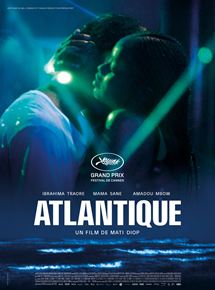
Atlantics is a 2019 internationally co-produced supernatural romantic drama film directed by Mati Diop, in her feature directorial debut. It was selected to compete for the Palme d'Or at the 2019 Cannes Film Festival. Diop made history when the film premiered at Cannes, becoming the first Black woman to direct a film featured in competition at the festival.
















